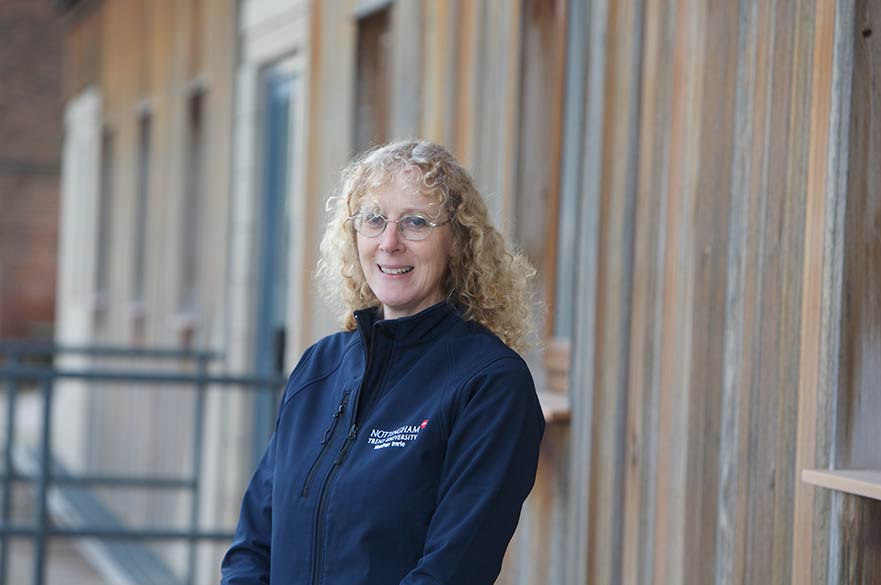Role
Dr Imrie is a Lecturer for the Veterinary Nursing Foundation Degree course and is Module Leader for Applied Functional Anatomy and Theatre Practice and Diagnostics
Career overview
Dr Imrie is a veterinarian with experience in small animal practice. Part of her career has been spent in research; completing her PhD at the University of Nottingham where she looked at the carriage of immune complexes by human red blood cells. She then spent six years at the University of Oxford where she looked at innate immune responses to malaria in children in Papua New Guinea and Gabon.
Research areas
Dr Imrie is currently looking at immune responses in chickens in collaboration with Dr Emily Burton's group and has an interest in bovine mycobacterial diseases. Dr Imrie is collaborating with colleagues at the University of Nottingham into the development of apps to improve numeracy in students within the health care profession.
Opportunities to carry out postgraduate research towards an MPhil/PhD exist in the School of Animal, Rural and Environmental Sciences and further information may be obtained from the NTU Doctoral School.
Publications
Individual variation in levels of haptoglobin-related protein in children from Gabon. Imrie HJ, Fowkes FJI, Migot-Nabias F, Luty JF, Deloron P and Day KP, PLoS ONE, 2012, 7 (11) e49816
The acute phase response in children with mild and severe malaria in Papua New Guinea. O'Donnell A, Fowkes FJ, Allen SJ, Imrie HJ, Alpers MP, Weatherall DJ and Day KP, Transactions of the Royal Society of Tropical Medicine and Hygiene, 2009, 103 (7) 679-86
Host erythrocyte polymorphisms and exposure to Plasmodium falciparum in Papua New Guinea. Fowkes FJI, Michon P, Pilling L, Ripley RM, Tavul L, Imrie HJ, Woods CM, Mgone CS, Luty AJF and Day KP, Malaria Journal, 2008, 7 (1) 1
Population genomics of the immune evasion (var) genes of Plasmodium falciparum. Barry AE, Leliwa-Sytek A, Tavul L, Imrie HJ, Migot-Nabias F, Brown SM, McVean GAV and Day KP, Public Library of Science Pathogens, 2007, 3 (3) e34
Low prevalence of an acute phase response in asymptomatic children from a malaria-endemic area of Papua New Guinea. Imrie HJ, Fowkes FJI, Michon P, Tavul L, Reeder JC, Luty AJF and Day KP, American Journal of Tropical Medicine and Hygiene, 2007, 76 (2) 280-4
Haptoglobin levels are associated with haptoglobin genotype and a+-thalassaemia in a malaria-endemic area. Imrie HJ, Fowkes FJI, Michon P, Tavul L, Hume JCC, Piper KP, Reeder JC and Day KP, American Journal of Tropical Medicine and Hygiene, 2006, 74 (6) 965-971
Association of haptoglobin levels with age, parasite density and haptoglobin genotype in a malaria-endemic area of Gabon. Imrie H, Fowkes FJI, Migot-Nabias F, Michon P, Justice A, Deloron P, Luty JF and Day KP, American Journal of Tropical Medicine and Hygiene, 2006, 74 (1) 26-30
Human serum haptoglobin is toxic to Plasmodium falciparum in vitro. Imrie HJ, Ferguson D and Day KP, Molecular and Biochemical Parasitology, 2004, 133 (1) 93-98
Press expertise
- Animal immunology, specifically to bovine TB, liver fluke and human malaria
- Animal anatomy and physiology
- Animal diagnostics
